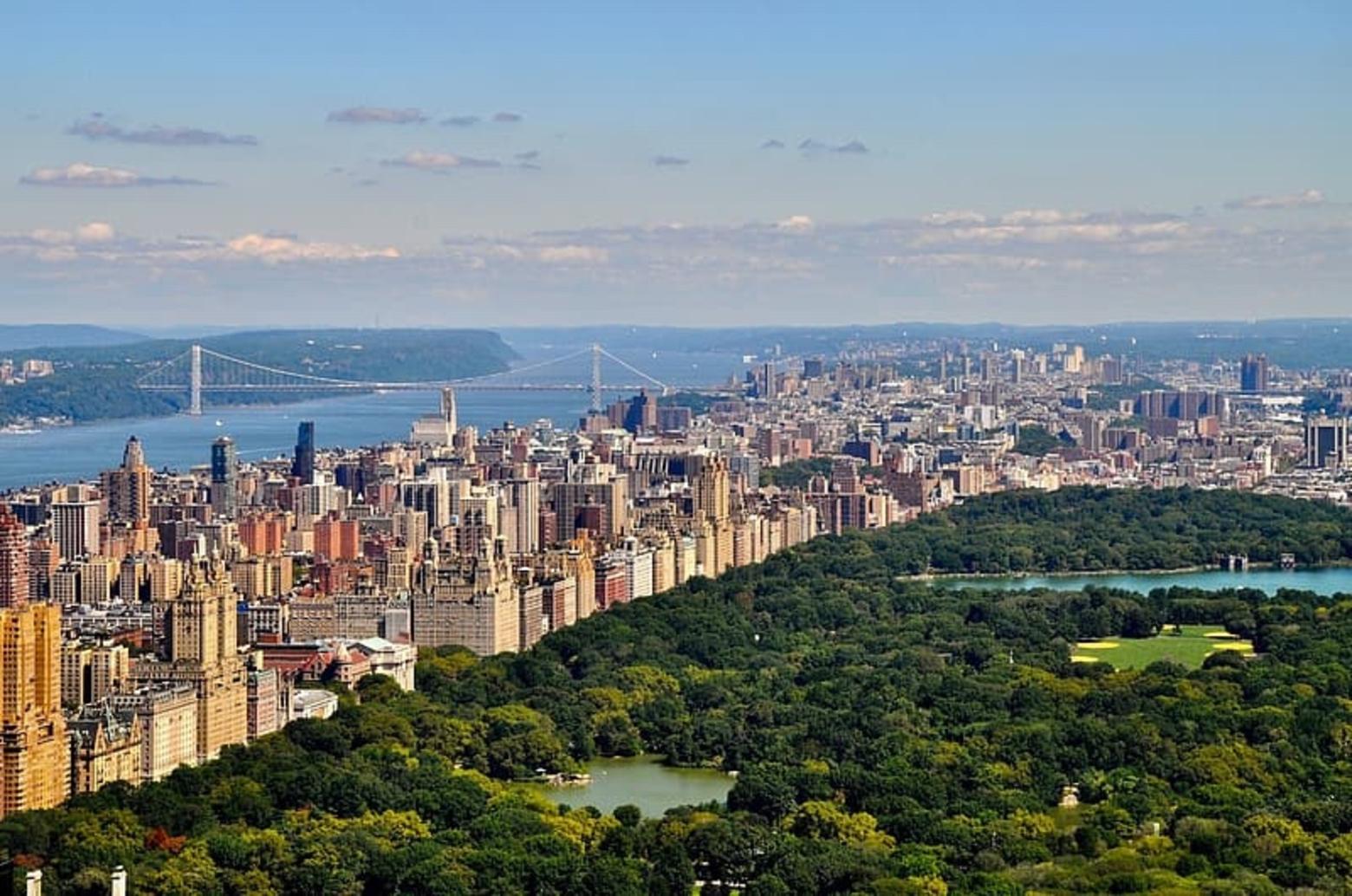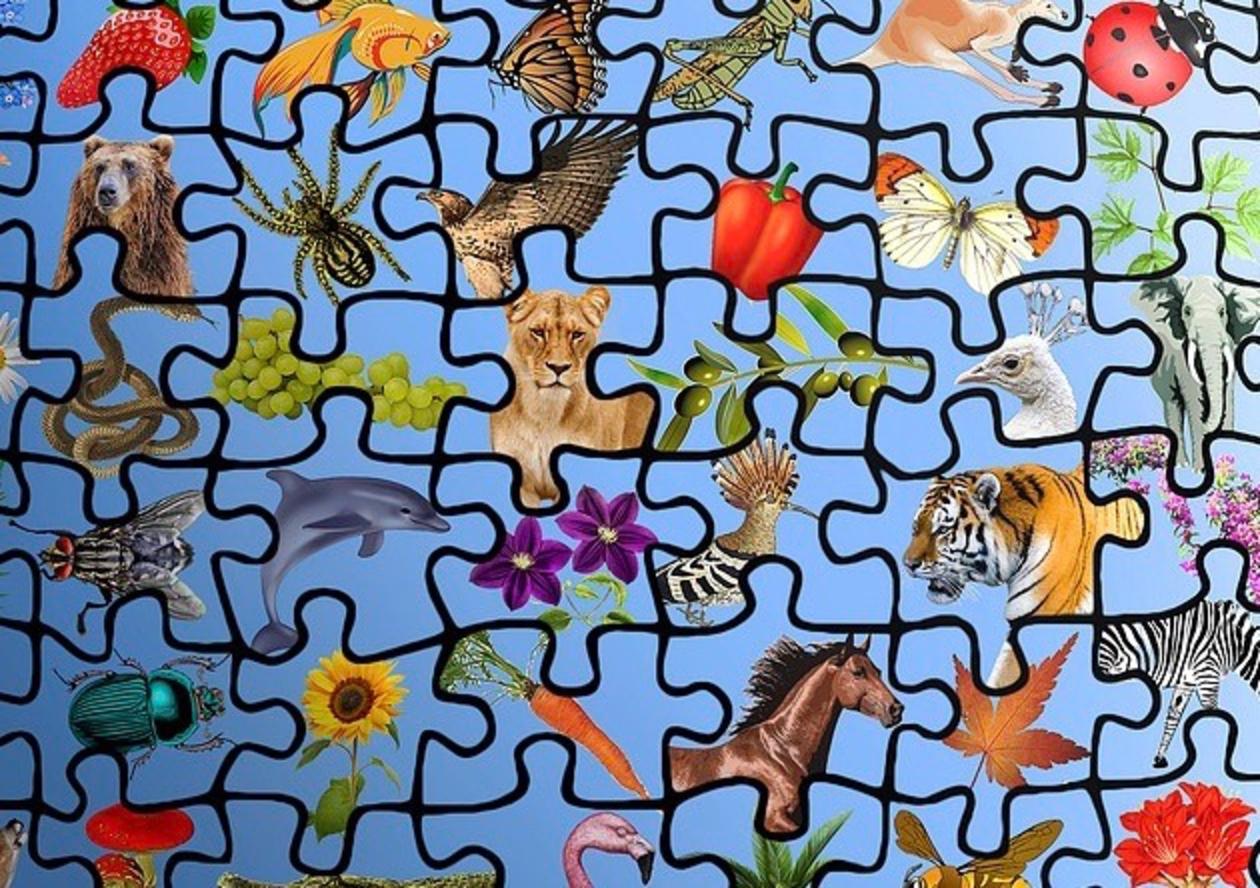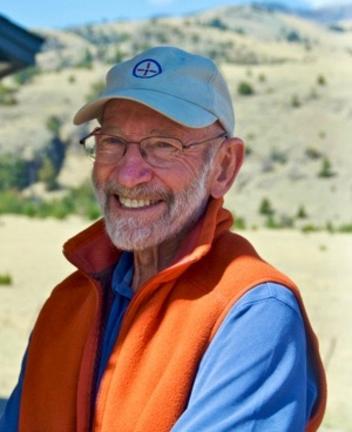Back to StoriesSoulé's Last Warning: We'll Never 'Develop Our Way' To Better Conservation Outcomes
August 30, 2020
Soulé's Last Warning: We'll Never 'Develop Our Way' To Better Conservation OutcomesThe late Michael Soulé, godfather of conservation biology, offered this critique of 'New Conservation' and its consequences for regions like Greater Yellowstone
EDITOR'S NOTE: Michael Soulé is heralded as "the godfather of conservation biology." He died June 17, 2020 at age 84. Over the years, Todd Wilkinson, founder of Mountain Journal, had many conversations with Soulé and is currently working on a profile about him. The following piece, titled The "New Conservation," was one of Soulé's last major critiques. In it, he pushed back against arguments advanced by some that wildlife conservation only has relevance if it meets the economic, recreation and social needs of humans. The essay remains timely and is certain to spur discussion. The piece is printed is with Soulé's permission granted shortly after it first appeared.
By Michael Soulé
A powerful but chimeric movement is rapidly gaining recognition and supporters. Christened the “new conservation,” it promotes economic development, poverty alleviation, and corporate partnerships as surrogates or substitutes for endangered species listings, protected areas, and other mainstream conservation tools.
Its proponents claim that helping economically disadvantaged people to achieve a higher standard of living will kindle their sympathy and affection for nature. Because its goal is to supplant the biological diversity-based model of traditional conservation with something entirely different, namely an economic growth-based or humanitarian movement, it does not deserve to be labeled conservation.
Institutional allies and supporters of the new conservation include the Gordon and Betty Moore Foundation, the Long Now Foundation, the Nature Conservancy, and the social‐justice organization The Breakthrough Institute. The latter write—in the style of the Enlightenment—that, “We must open our eyes to the joy and excitement experienced by the newly prosperous and increasingly free [persons]. We must create a world where every human can not only realize her material needs, but also her higher needs.”
The manifesto of the new conservation movement is “Conservation in the Anthropocene: Beyond Solitude and Fragility." In the latter document, the authors assert that the mission of conservation ought to be primarily humanitarian, not nature (or biological diversity) protection: “Instead of pursuing the protection of biodiversity for biodiversity's sake, a new conservation should seek to enhance those natural systems that benefit the widest number of people, especially the poor” (emphasis added).
In light of its humanitarian agenda and in conformity with David Foreman's distinction between environmentalism (a movement that historically aims to improve human well‐being, mostly by reducing air and water pollution and ensuring food safety) and conservation, both the terms "new" and "conservation" are inappropriate.
Proponents declare that their new conservation will measure its achievement in large part by its relevance to people, including city dwellers.
Underlying this radically humanitarian vision is the belief that nature protection for its own sake is a dysfunctional, antihuman anachronism. To emphasize its radical departure from conservation, the characters of older conservation icons, such as Henry David Thoreau, John Muir, and Edward Abbey, are defamed as hypocrites and misanthropes and contemporary conservation leaders and writers are ignored entirely.
Underlying this radically humanitarian vision is the belief that nature protection for its own sake is a dysfunctional, antihuman anachronism. To emphasize its radical departure from conservation, the characters of older conservation icons, such as Henry David Thoreau, John Muir, and Edward Abbey, are defamed as hypocrites and misanthropes and contemporary conservation leaders and writers are ignored entirely.
The "new conservationists" assume biological diversity conservation is out of touch with the economic realities of ordinary people, even though this is manifestly false. Since its inception, the Society for Conservation Biology has included scores of progressive social scientists among its editors and authors.
The "new conservationists," in contrast, also assert that national parks and protected areas serve only the elite, but a poll conducted by the nonpartisan National Parks Conservation Association and the National Park Hospitality Association estimates that 95 percent of voters in America want continued government support for parks.
Furthermore, some argue that it should be a goal of conservation to spur economic growth in habitat‐eradicating sectors, such as forestry, fossil‐fuel exploration and extraction, and agriculture.
The key assertion of the new conservation is that affection for nature will grow in step with income growth. The problem is that evidence for this theory is lacking.
"...some argue that it should be a goal of conservation to spur economic growth in habitat‐eradicating sectors, such as forestry, fossil‐fuel exploration and extraction, and agriculture. The key assertion of the new conservation is that affection for nature will grow in step with income growth. The problem is that evidence for this theory is lacking."
In fact, the evidence points in the opposite direction, in part because increasing incomes affect growth in per capita ecological footprint.
Other nettlesome issues are ignored, including which kinds of species will persist and which will not if the new economic‐growth agenda replaces long‐term protection in secure protected areas?
Related questions include:
Would the creation of designated wilderness areas be terminated? Would the funds to support the new conservation projects be skimmed from the dwindling conservation budgets of nongovernmental and government agencies? Is conservation destined to become a zero‐sum game, pitting the lifestyles and prosperity of human beings against the millions of other life forms?
Is it ethical to convert the shrinking remnants of wild nature into farms and gardens beautified with non‐native species, following the prescription of writer Emma Marris? Will these garden‐like reserves designed to benefit human communities admit inconvenient, bellicose beasts such as lions, elephants, bears, jaguars, wolves, crocodiles, and sharks—the keystone species that maintain much of the wild's biological diversity?
"Is conservation destined to become a zero‐sum game, pitting the lifestyles and prosperity of human beings against the millions of other life forms? Is it ethical to convert the shrinking remnants of wild nature into farms and gardens beautified with non‐native species, following the prescription of writer Emma Marris? Will these garden‐like reserves designed to benefit human communities admit inconvenient, bellicose beasts such as lions, elephants, bears, jaguars, wolves, crocodiles, and sharks—the keystone species that maintain much of the wild's biological diversity?"
The "new conservationists" assume the benefits of economic development will trickle down and protect biological diversity. Even if that assumption were borne out, I doubt that children growing up in such a garden world will be attuned to nature or that the hoped‐for leap in humanity's love for the wild will occur once per capita consumption reaches a particular threshold.
Most shocking is the dismissal by the "new conservationists" of current ecological knowledge. The best current research is solidly supportive of the connection between species diversity and the stability of ecosystems. It has firmly established that species richness and genetic diversity enhance many ecological qualities, including productivity and stability of terrestrial and marine ecosystems, resistance to invasion by weedy species, and agricultural productivity; furthermore, research shows that greater species and genetic diversity reduces transmission rates of disease among species.
In contrast, implementation of the new conservation would inevitably exclude the keystone species whose behaviors stabilize and regulate ecological processes and enhance ecological resistance to disturbance, including climate change For these reasons and others, conservationists and citizens alike ought to be alarmed by a scheme that replaces wild places and national parks with domesticated landscapes containing only nonthreatening, convenient plants and animals.
The globalization of intensive economic activity has accelerated the frenzied rush for energy and raw materials and is devouring the last remnants of the wild, largely to serve the expanding, affluent, consumer classes in industrialized and developing nations. At current rates of deforestation, dam construction, extraction of fossil fuels, land clearing, water withdrawal, and anthropogenic climate change, it is expected that the two major refugia for biological diversity on the globe—the wet, tropical forests of the Amazon, and Congo Basin—will be gone by the end of this century.
Is the sacrifice of so much natural productivity, beauty, and diversity prudent, even if some human communities and companies might be enriched? No. The worth of nature is beyond question and our obligation to minimize its gratuitous degradation is no less.
There is no evidence for the proposition that people are kinder to nature when they are more affluent, if only because their ecological footprints increase roughly in proportion to their consumption. We also know that the richer nations may protect local forests and other natural systems, but they do so at the expense of those ecosystems elsewhere in less affluent places.
"There is no evidence for the proposition that people are kinder to nature when they are more affluent, if only because their ecological footprints increase roughly in proportion to their consumption. We also know that the richer nations may protect local forests and other natural systems, but they do so at the expense of those ecosystems elsewhere in less affluent places."
A third thing we know is that anthropogenic climate change is probably the greatest threat to civilization.
I must conclude that the "new conservation," if implemented, would hasten ecological collapse globally, eradicating thousands of kinds of plants and animals and causing inestimable harm to humankind in the long run.
Finally, I believe that those who donate to conservation organizations do so in full confidence that their gifts will benefit wild creatures and their habitats. The central issue is whether monies donated to the Nature Conservancy and other conservation nonprofit organizations should be spent for nature protection or should be diverted to humanitarian, economic‐development projects such as those proffered by the new conservation on the dubious theory that such expenditures may indirectly benefit biological diversity in the long run.
Traditional conservationists do not demand that humanitarians stop helping the poor and underprivileged, but the humanitarian‐driven new conservationists demand that nature not be protected for its own sake but that it be protected only if it materially benefits human beings.




